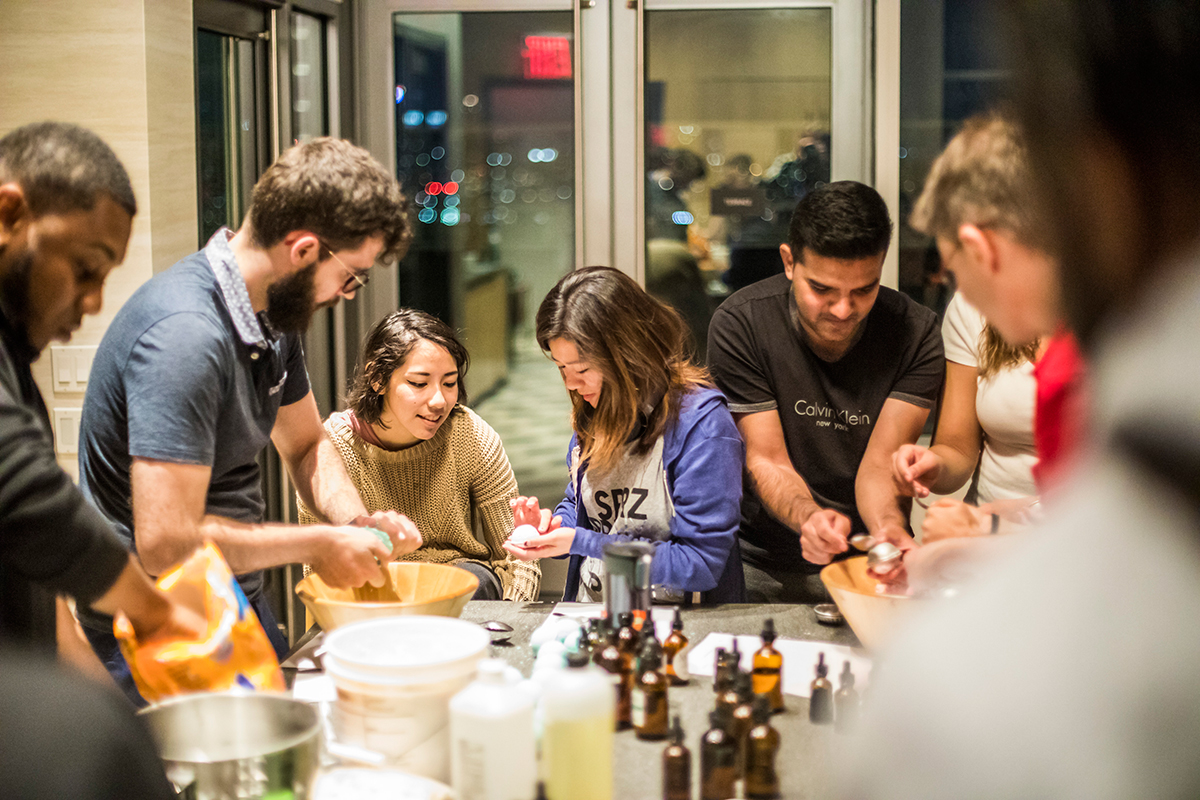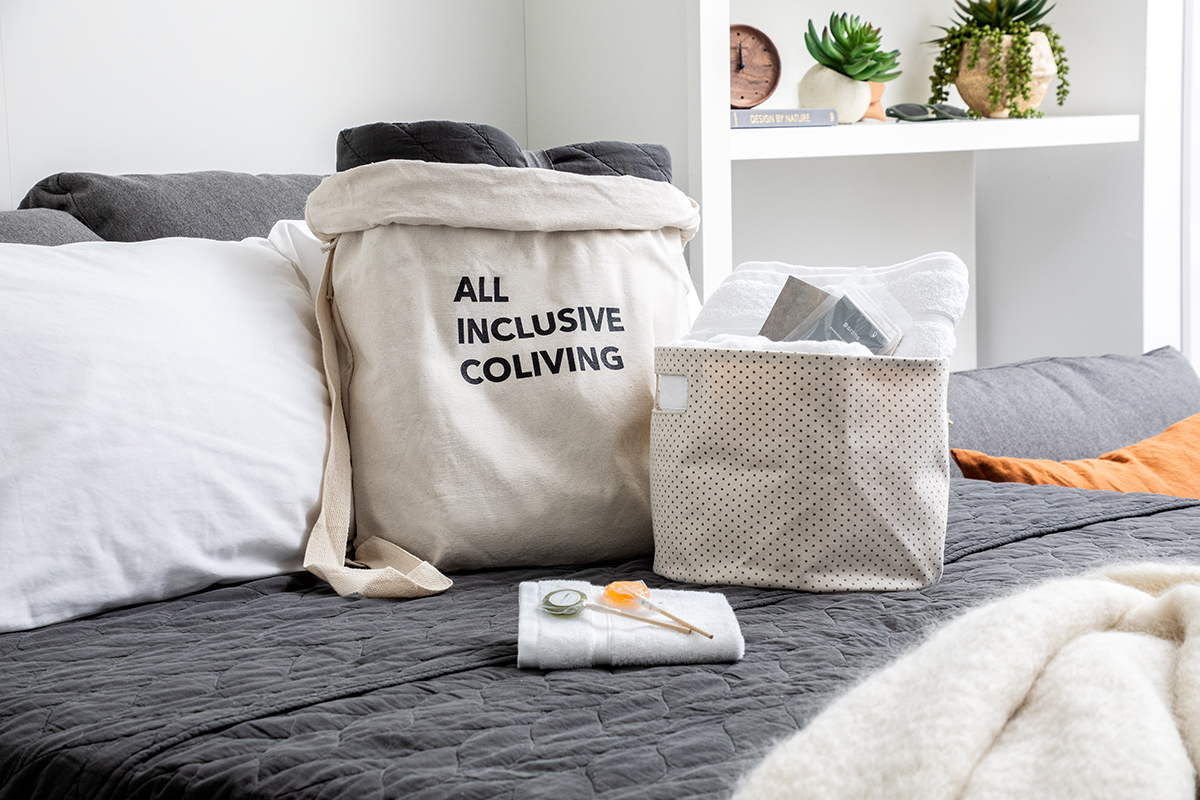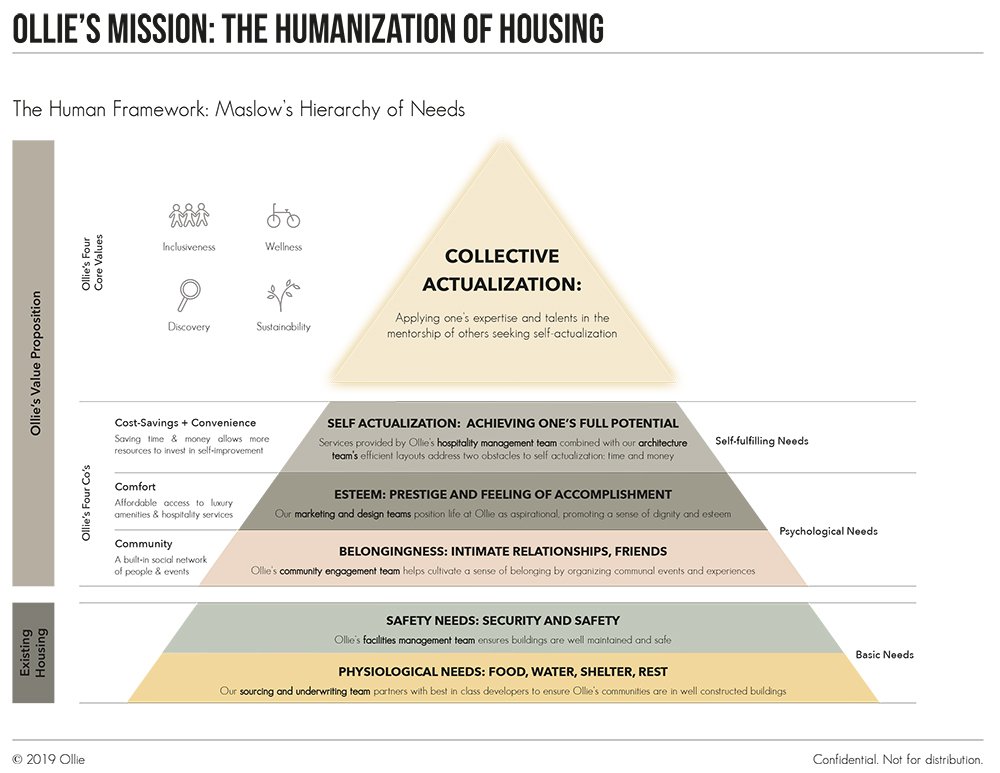
The Humanization of Housing: Coliving and Maslow’s Hierarchy of “We”
June 4, 2019 — The Big Picture
In 1943, Dr. Abraham Maslow advanced a theory for understanding human motivation: his eponymous Hierarchy of Needs. Several decades later, he would quietly amend the punchline of his original theory. The capstone of his initial pyramid, self-actualization, would instead become self-transcendence, reckoning that the highest form of actualization isn’t about “me”, but rather “we.” With the emergence of the Sharing Economy, social entrepreneurship, and cause-related marketing, Dr. Maslow’s lesser known revision to his initial work is now proving to be his most prescient and perhaps his most important.
For coliving startups like my company, Ollie, we attempt to solve for something that neither traditional real estate nor technology alone have solved. Both real estate and tech fail to bring us any closer to Dr. Maslow’s notion of self-transcendence, which is to say, closer to each other. Instead, we find ourselves increasingly polarized. While our apartment towers are taller and shinier than at any point in history, they lift only a select few to new heights.
On a practical level, the value proposition of coliving startups is making housing more accessible by spreading living expenses among more occupants or by eliminating unnecessary space. In Dr. Maslow’s parlance, we must provide more than just basic needs of shelter and security. We must foster a sense of belongingness and esteem, create opportunities for self-actualization, and ultimately bring our world closer to the kind of global citizenship that transcends self.
When my brother Andrew and I began creating a coliving platform, it was with the hope of “humanizing housing.” Our founding story is rooted in Andrew’s arrival to New York City. Determined to make ends meet, he had to partition his living room into two additional bedrooms and sublet them on Craigslist. Our mission to humanize housing seeks to make a higher quality of life accessible to a wider cross section of our society without relying on Affordable Housing mandates. We anthropomorphized our brand on the notion that Ollie, a phonetic wordplay on “all inclusive”, would be everyone’s favorite neighbor or exemplar roommate — the one who sets up the furniture, does the dishes, and rallies friends together for the Super Bowl party. We also saw an opportunity to activate community with intent, engage it with purpose, and embed time-saving services into maintaining a functioning household.

In envisioning the future, we see “all inclusive coliving” as more than a tagline or a reference to pre-furnished apartments, high-speed WiFi, weekly housekeeping, state of the art amenities, and weekend getaways. Rather, we see it as an enabler of our mission — building upon our most basic physical needs of shelter, warmth, water, and security, to also encompass the emotional and psychological needs of the whole human, including promoting a sense of belongingness, esteem, and above that, the sense of purpose that comes with self-actualization. And although by definition self-actualization can only come from one’s self, we nonetheless feel that, as a coliving platform, we are in a unique position to materially alleviate two of the biggest obstacles to self-actualization: time and money. At the top of Dr. Maslow’s Hierarchy of Needs, we also see an opportunity for collective actualization, or as Dr. Maslow dubbed it, self-transcendence. If more people have more time and more money to nurture their interests into side-hustles and their side hustles into their life’s work, they will then reinvest that time and money into their community.
With 422 beds in a 43-story building, Alta+ by Ollie, the nation’s largest coliving community to date, sits alongside 297 brand new luxury apartments in New York City’s popular Long Island City neighborhood. In an area where incomes are otherwise qualified at nearly $100,000 and up, we now house hundreds of individuals earning below the area median income. Additionally, Alta by Ollie residents share the same 27,000 square feet of amenity space as the co-located luxury apartments. And despite the trade-off in space in the Ollie homes, we’ve achieved customer satisfaction scores that are consistent with the ratings typically reserved for luxury brands.

And what of the economics? Our developer partner had no obligation or incentive to incorporate Affordable Housing units on-site. Yet, without any rent subsidies or below-market pricing mandates, we cut the income threshold that would have otherwise been required by one-half. We’ve done it while delivering the building’s owners nearly 30% higher NOI compared to conventional luxury apartments. And although a “risk premium” was necessary for investors taking a gamble on an untested business model, we cannot help but wonder how much lower our rents might be, how many more people we might serve, when investors begin to adopt Maslowian principles of their own, measuring their returns not merely in dollars and cents, but in the form of social impact, the hierarchy of “we.”